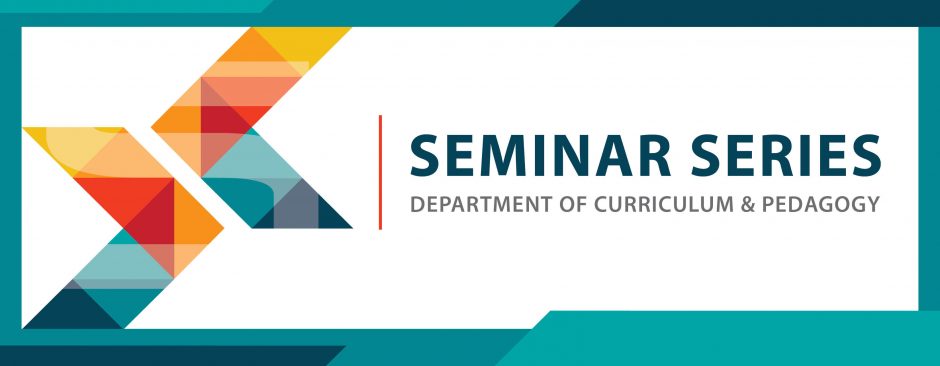
Gert Biesta | University of Luxembourg
Jan 10th, 2012 | 12:30-2:00 p.m. | Scarfe 310
View the Seminar Poster
The six part Theorizing Pedagogy Seminar Series will explore ‘pedagogy’ as it has been understood historically and as it is lived presently within educational institutions and beyond. Drawing on the thought of curriculum thinkers, indigenous scholars, educational philosophers and cultural theorists, speakers will examine a range of ‘pedagogies’ as they have been construed within diverse disciplinary and wisdom traditions.
Abstract:
Ever since I moved from the Netherlands to the UK in 1999 I have been fascinated by the differences between the ways in which the field of educational scholarship (roughly encompassing empirical research and theoretical work) ‘operates’ in the English-speaking world compared to the traditions I grew up in academically, which were more strongly rooted in the German-speaking world. In my presentation I will look at the historical, social-institutional and intellectual dimensions of these differences. This not only helps to understand why the field of educational scholarship has developed so differently in different contexts and settings. I will also try to indicate I what way these differences matter. For this I will focus particularly on the notion of ‘pedagogy’ and its German equivalent ‘Pädagogik.’ On the one hand I will show how the notion of ‘Pädagogik’ has played a central and constitutive role in the way in which the field of educational scholarship has developed and has achieved (and to a certain extent has maintained) its identity in the German-speaking context. On the other hand I will ask how equivalent ‘pedagogy’ and ‘Pädagogik’ actually are and whether and to what extent a dialogue between the two
might enrich both of them.
Short Bio:
Gert Biesta (www.gertbiesta.com) is Professor of Educational Theory and Policy at the University of Luxembourg. He writes about the theory and philosophy of education and educational research and is particularly interested in relationships between education, democracy and democratisation. His latest book, The Beautiful Risk of Education, will appear with Paradigm Publishers in 2013.